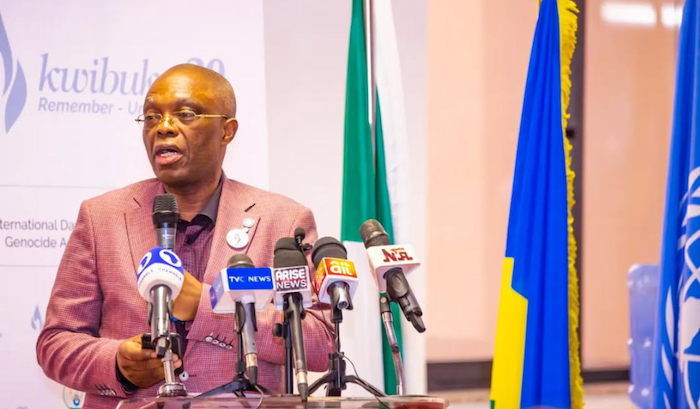
WHO: Nigeria, Africa Has Over 100 Health Emergencies Annually
The World Health Organisation (WHO) has said that Nigeria and the rest of Africa are being confronted with over 100 health emergencies every year.
Speaking during the formal presentation of eight emergency response vehicles to the FCT team led by the Mandate Secretary for Health and Social Services, Dr. Dolapo Fasawe, the Country Director of the WHO, Dr. Walter Kazadi Mulombo, said the initiative seeks to develop a multidisciplinary, trained and rapidly deployable national workforce, backed by strong operations and logistics at all level and led by the government.
“It is indeed a reason for joy to see this ceremony, which is here to mark the official handover of eight utility vehicles, by the WHO to the Federal Capital Territory administration,” he said.
Molumbo said the flagship project was designed by the Regional Director in consultation with Africa Centre for Disease Control (CDC) to ensure that countries are able to mobilise within 24 hours of a confirmed emergency.
“The initiative aims to develop a multidisciplinary, trained and rapidly deployable national workforce, backed by strong operations and logistics at all levels and led by the government.
He said the donation was a practical step forward in realising the initiative of four pillars, namely, the workforce development, the response coordination, operations and logistics and Risk Communication and Community Engagement.
He explained that the intervention was a joint initiative between WHO African region and Africa, CDC.
Mulombo said the event served as a reminder of a journey started by WHO and partners three years ago in December 2022, when they organised the training for the first batch of advocacy responders.
“This is in recognition of the fact that, as you know, Africa continues to experience more than 100 health emergencies annually, ranging from disease outbreaks and natural disasters to conflict-driven crises, and Nigeria contributes a lot to that, as you all know.
“The COVID 19 pandemic, Ebola outbreak, cholera outbreak, Lassa fever, recently, dictatorial outbreaks, and even anthrax have tested our system and exposed gaps that need to be urgently addressed. These, he said, range from coordination to mobility, workforce readiness and logistics.
“On behalf of the World Health Organisation in Nigeria, today, we are gathering to mark an important milestone in our collective effort to strengthen emergency preparedness and response in the Federal Capital Territory.
“These vehicles, procured with the generous support of WHO, are intended to enhance the operational capacity of the FCT Public Health Emergency Response System.
“This handover is part of the Strengthening and Utilising Response Groups for Emergencies (SURGE) flagship initiative, which aims to bolster health emergency preparedness and response within the FCT,” he said.
Mulombo said that FCT was one of six states selected to pioneer the SURGE implementation in Nigeria.
Other states include; Lagos (Southwest), Abia (Southeast), Edo (South-South), and Kano (Northwest).
According to him, the vehicles will enhance the FCT’s mobility and rapid deployment capacity for emergency teams, ensuring that critical personnel, supplies, and response efforts reach affected communities swiftly and efficiently.
While commending the unique resilience so exhibited by the FCT Mandate Secretary for Health and her health emergency response team, Mulombo said that first phase of the SURGE intervention will be for Yobe, and FCT while other four states are to follow
On his part, the Director General of Nigeria Centre for Disease Control and Prevention (NCDC), Dr. Jide Idris, said that the country is presently battling eight health emergencies which the agency’s team of rapid responders are actively responding to.
He however said that a key challenge in containing health emergencies in Nigeria and indeed other African countries is the lack of adequate health security workforce.
While receiving the vehicles from WHO, Fasawe said that disease surveillance is the backbone of public health protection intervention.
“It enables us to detect outbreaks early, respond swiftly, and prevent widespread harm. By monitoring disease trends, we can identify hotspots, track transmission patterns, and inform evidence-based policies,” she said.
